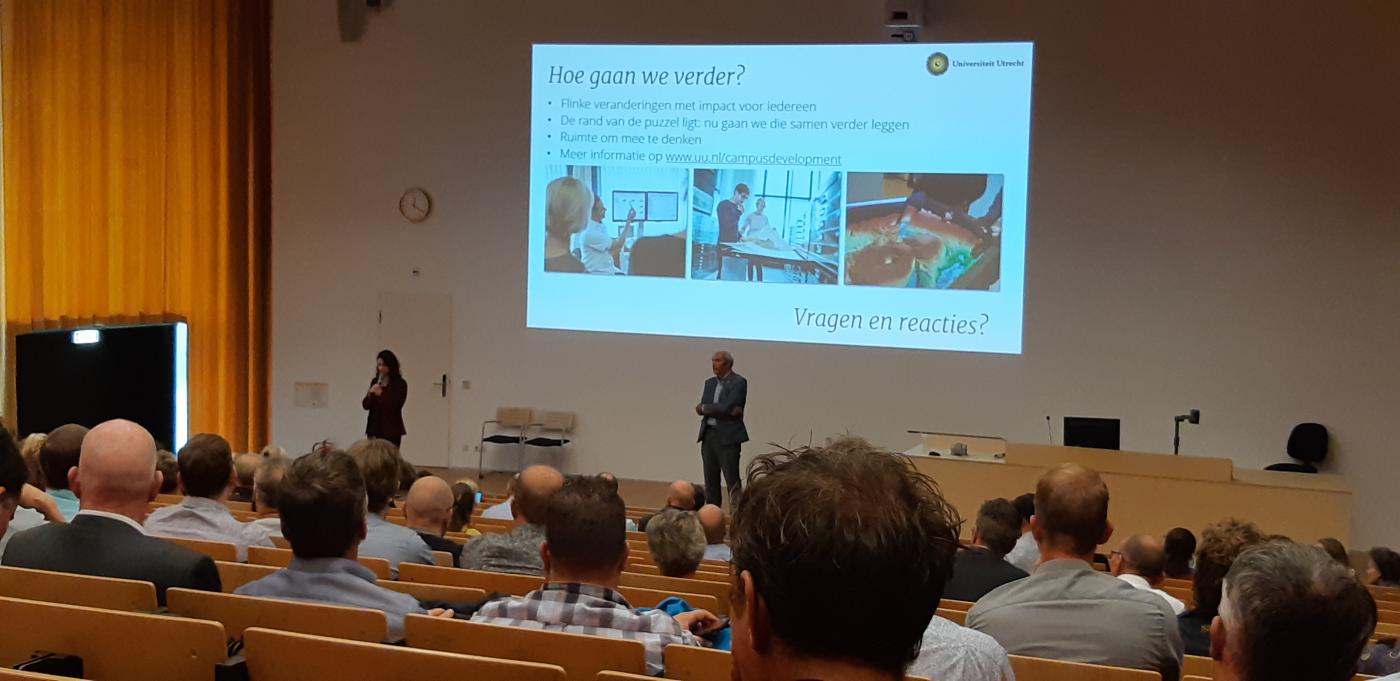Faculty councils angry about lack of say in housing plan

The University College Utrecht council, in agreement with the student members of the Science council, took the initiative to write the letter. Chairman Bas Defize says the members of the UCU council are angry and worried. And that’s not even mainly because according to the new plans, UCU has to leave its campus, with all that that would entail – it’s mostly because the council struggles with the process that led to that decision.
Defize says the members of his council were completely caught by surprise. The strict confidentiality surrounding the decisions regarding the university’s corporate housing plan wasn’t necessary, he says, and it wasn’t right either. The letter states that the course of affairs might be in violation of the legal regulations about the right to information and the advisory rights of the university’s co-determination boards.
The council members also don’t understand why the University Council agreed to assemble a four-person committee from its own ranks which was only allowed to join the discussion about the plans with complete confidentiality. Defize: “What was the role of that committee? As far as we know, there hasn’t been any consultation with other co-determination boards. We think that’s strange.”
Defize says people understand the fact that sensitive information about real estate with financial consequences has to remain confidential. “But when you’re talking about a broad approach and the starting points you’re using, shouldn’t there be a lot that you can present?”
Understandable frustrations
The letter has since been signed by the council of the Faculty of Science, which has numerous questions about the unexpectedly quick decision to renovate the Kruyt building while in use. In an opinion piece for DUB published on Wednesday, biologist Hans de Cock, who works in the Kruyt building, explains his objections. The councils of Geosciences, Social Sciences, and Veterinary Medicine have also signed the letter.
The faculty councils of Humanities and Law, Economics, and Governance have decided not to sign the letter. An important reason for this is that many council members of these faculties wonder whether the legal position of the decentralised councils and departments indeed justifies more involvement, as the UCU council states in its letter.
Pauline Jacobs, chairwoman of the Law council, calls the frustrations understandable, but says: “The university’s central corporate housing policy is a matter that’s discussed at university level. The university council is the discussion partner of the Executive Board in this (…). In this regard, our opinion differs from that of the UCU Council, which presupposes that the decentralised co-determination should’ve been involved in this process.”
This was also one of the considerations of the Faculty of Humanities when it decided not to sign the letter. But the faculty council does “support the sentiment conveyed by the letter”, says Imar de Vries, chairman of the council’s staff members. “Choosing confidentiality, and only discussing it with the University Council at such a small scale, are things that came as unpleasant surprises to mostly UCU and Sciences,” he states. De Vries has let Defize know that the council is willing to reflect on its decision if all other councils were to sign the letter.
Chairman Mike Boxem of the Faculty of Science council says it might be true that the correct legal procedures were followed, but it hasn’t led to optimal decision-making. That’s the reason his council did sign the letter: “It’s our opinion that a plan as far-reaching as this, should have been communicated and discussed more.”
Bas Defize, chairman of the UCU council, says the letter will be sent to the executive board on behalf of all the undersigned at the end of this week at the latest.
Schippers: “If the process had not been confidential, the executive board would have undoubtedly been excluded from the formal council discussion. In that case, it would’ve been either take it or leave it. The University Council thought it was in the interest of both students and staff to take this route again.”
Schippers says the confidential committee was thoroughly informed about all the information surrounding the university’s housing stock. He says the committee was able to ask all the questions it wanted, and was also able to present alternative options and adjustments. Some of these, he says, were in fact included in the plans.
Given the complexity of the process, the unprecedented size of the total housing operation, and the many interests that played a role, Schippers thinks the correct path was taken. “I don’t see how co-determination could’ve been included better, or how it could’ve had more influence.”